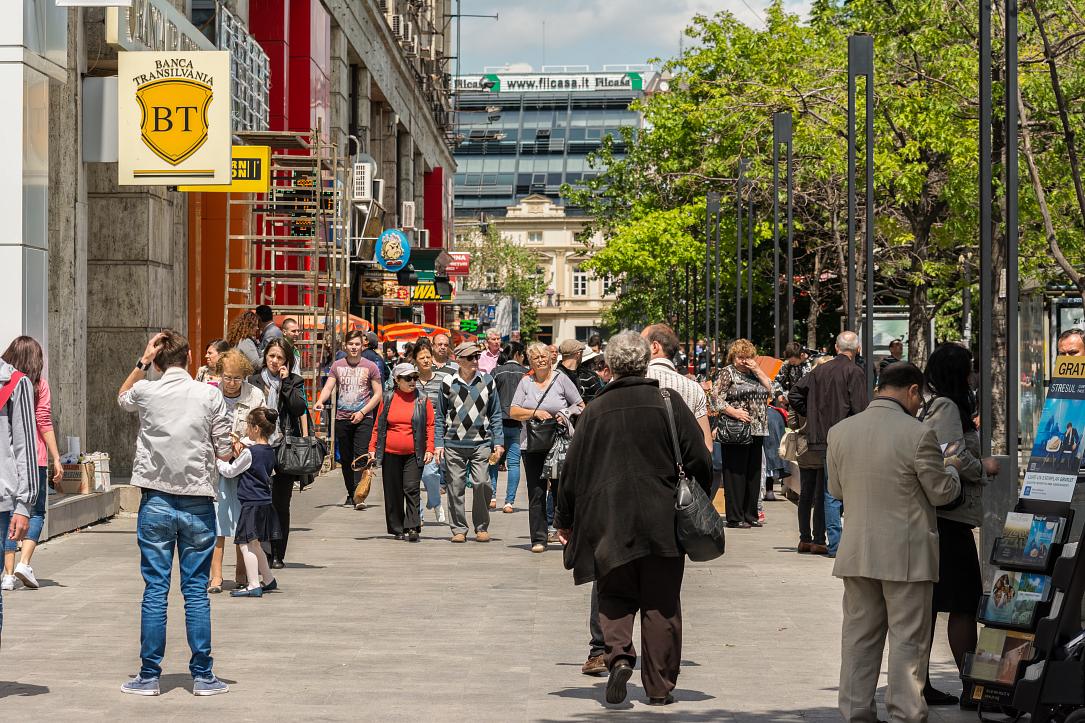Poll: 68% of Romanians believe 2024 will be better than 2023

Over two thirds of people in Romania believe that 2024 will be better than 2023, representing a slight increase year-over-year, according to a new poll by Ipsos. According to the same source, optimism has risen in Europe, especially in Sweden, Poland, Spain, and the United Kingdom, reflecting signs of economic revival.
The poll surveys people's expectations worldwide on a multitude of topics, including technology, global security, climate change, society, economy, and future prospects. The latest edition of Ipsos' study monitors the opinions of over 25,000 citizens from 34 countries, including Romania.
According to the main findings, optimism levels are rising globally, and citizens expect worsening climate change. On average, 1 out of 2 citizens worldwide (53%) state that 2023 was a bad year for them and their families, while 70% say it was a bad year for their country. For each statement, this is the lowest level since the outbreak of the Covid-19 pandemic, indicating growing optimism.
In Romania, three-quarters (74%) believe that the past year was a bad one for their country, while half (53%, the same as the global average) consider 2023 a bad year individually and for their families.
70% of respondents globally believe that 2024 will be better than 2023, representing a 4% increase compared to the previous survey. Optimism has risen in Europe, especially in Sweden (+12%), Poland, Spain, and the United Kingdom (+11%), reflecting signs of economic revival. In Romania, optimism about 2024 has increased by 6% compared to the previous wave, now standing at 68%.
More people believe that in 2024, artificial intelligence will lead to job loss (64%) rather than job creation (43%). The same opinion is held in Romania (59% vs. 29%).
After 2023 was declared the warmest year in recorded meteorological history (including Romania), 81% of respondents expect the global average temperature to increase even further in 2024. Alongside India (70%) and the USA (68%), Romanians see this phenomenon as less likely (73%) compared to the other countries participating in the study.
Most respondents worldwide (59%) believe that in 2024, people will work more time at the office than from home. In Romania, 50% of study participants share this opinion, indicating a polarization of views.
On average, 50% of respondents expect the global economy to be stronger in 2024 compared to 2023 (a 4% increase from the previous wave of the study), approaching pre-pandemic levels. In Romania, although the majority believes that the global economy will not improve this year (55%), there is an 8% increase in optimism on this topic.
According to the same poll, compared to residents of the European Union countries included in the study, Romanians are more determined to make resolutions this year to do certain things for themselves or others (85% vs. 67%).
Meanwhile, Romanians are more concerned about inflation growth compared to the average of EU countries included in the study (71% vs. 63%). Inflation rates and interest rates may prove to be more persistent than expected, indicating slow progress. According to another Ipsos study conducted last year, 3 out of 10 Romanians believe that inflation will never return to normal.
Public opinion is polarized regarding the impact of artificial intelligence (AI), and concerns outweigh admiration for this technology. In Romania, the majority opinion is that artificial intelligence will eliminate new jobs (59%) rather than help create them (29%).
The same survey revealed that 73% of Romanians consider it likely that global temperatures will rise in 2024. 71% of study participants globally, and 62% of Romanians, expect to see more extreme weather events in their country in 2024 compared to 2023 (a 6% increase globally and 8% in Romania).
71% of global respondents expect an increase in migration to their country due to military conflicts and worsening environmental phenomena. 66% of Romanians support this statement, considering the year-on-year increase in foreign workers admitted to the labor market.
Compared to the average of EU states included in the study, Romanians are more convinced that the population of our country will decrease this year (70% vs. 45%) and show more optimism regarding pay equality between women and men for the same work (47% vs. 35%).
"As in the previous edition, Romanians maintain their immediate concerns (rising inflation and interest rates, demographic decline), being less concerned about climate change or personal data exposure on the internet. At the same time, the increase in optimism about what 2024 can bring and the expectation (even among a small number of our compatriots) that we will become more tolerant of each other is encouraging," says Dorian Cazacu, Senior Client Director at Ipsos Romania.
(Photo source: Radub85 | Dreamstime.com)













